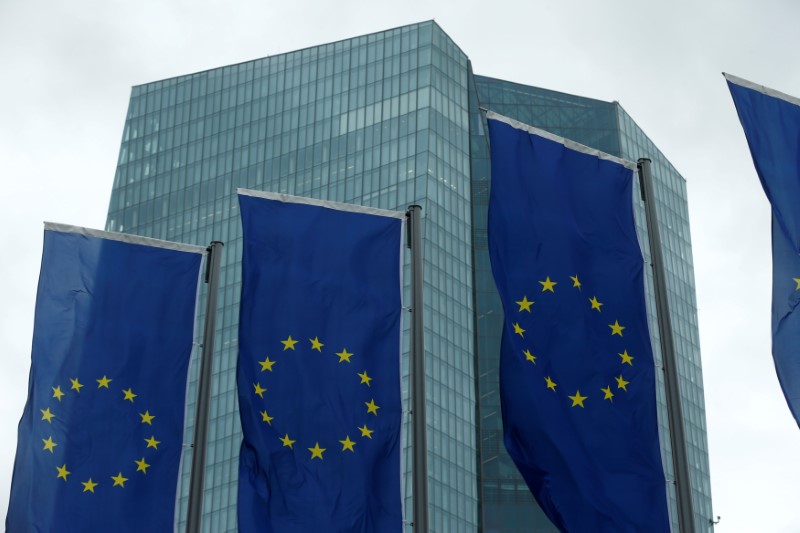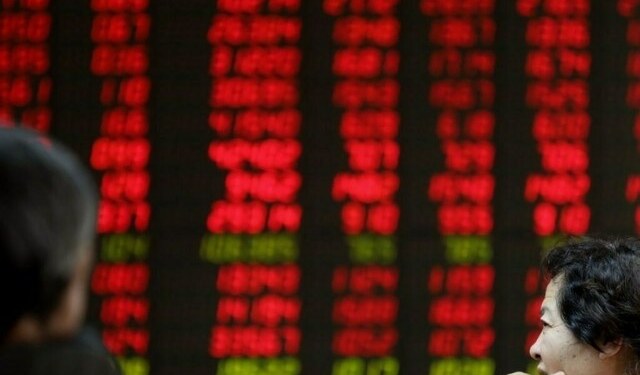 © Reuters. FILE PHOTO: The European Central Bank headquarters are pictured in Frankfurt
© Reuters. FILE PHOTO: The European Central Bank headquarters are pictured in FrankfurtBRUSSELS/FRANKFURT (Reuters) – Inflation in the euro zone slowed as expected in December, vindicating the European Central Bank’s decision to keep its policy easy despite growing pressure from Germany and other richer euro zone countries.
The ECB has said it would continue buying bonds at least until September and keep rates low well after to raise inflation to its two percent target. But policymakers from the Netherlands, Germany and other northern countries have voiced their worries about an overly easy policy while economic growth is strong.
Prices in the euro zone grew by just 1.4 percent year on year last month, or 10 basis points slower than in the previous month due to smaller increases in food and energy prices. Once those components are stripped out, so called “core” inflation was stable at 1.1 percent.
“There is no great pressure on the ECB to unwind QE,” Kenneth Broux, a market strategist at Societe Generale (PA:), said.
The slight deceleration in headline inflation had been expected by the ECB and by market economists polled by Reuters.
But a stronger-than-expected German inflation reading of 1.6 percent last week raised market speculation about an upside surprise in euro zone price growth on Friday.
After the data the euro
“The euro is not helping above $1.20 because it should delay inflation returning to target,” Societe Generale’s Broux said.
The ECB is due to hold its next policy meeting on Jan 25 and investors will look for any sign of discomfort with the euro’s strength in Mario Draghi’s press conference.
Fusion Media or anyone involved with Fusion Media will not accept any liability for loss or damage as a result of reliance on the information including data, quotes, charts and buy/sell signals contained within this website. Please be fully informed regarding the risks and costs associated with trading the financial markets, it is one of the riskiest investment forms possible.
Source: Investing.com



























